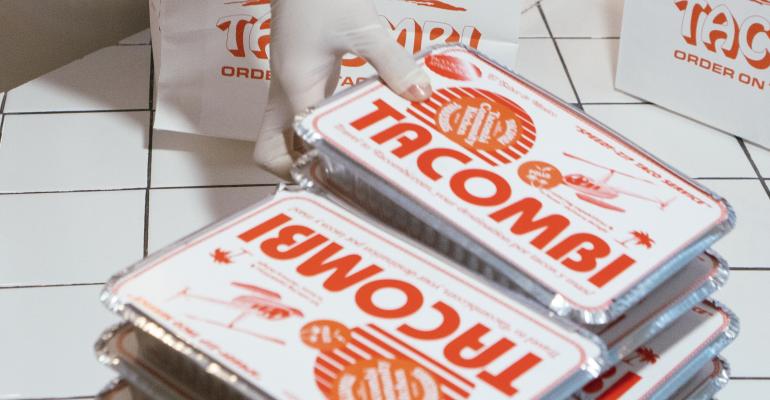Tacombi has a cult-like status in New York City, where its first taqueria, decked out with a “combi” bus — a van from the 1960s — in front of the restaurant, opened in 2010. But the chain has evolved into so much more than a restaurant over the past 14 years.
The brand was founded in Playa Del Carmen, Mexico, as a version of a food cart using that combi bus as a mobile kitchen. That bus had everything removed except its exterior, and it was converted to a kitchen inside. The roof was peeled back to create a place to eat the tacos they were cooking inside.
When Tacombi came to New York City, leaders wanted to ensure the quality and tradition of Mexican cooking was present in the brand’s food.
“The idea behind the brand is to connect you to Mexico, connect people to Mexico in general through the taco culture and the Mexican hospitality,” said Susana Camarena, executive director, Tacombi Foundation. “So that’s in general the idea behind the brand, and at the same time to reinvest in Mexican communities as we share the idea of Mexico with the world.”
While the brand is known for its food and its kooky design with combis coloring the streets of New York City, Miami, Connecticut, Virginia, Maryland, and Chicago, it’s using its popularity for good.
The Tacombi Foundation, headed by Camarena, has a goal of reinvesting in Mexican communities in the U.S. around each of the brand’s stores.
The foundation launched in 2018 and uses a community kitchen model to distribute thousands of meals to majority Mexican neighborhoods. In the past four years, the foundation has distributed 1 million meals.
“We’re a Mexican brand,” Camarena said. “We want to reinvest in the Mexican community. We know that the Mexican community is embedded in communities where the Hispanic population has a presence.”
These meals are made in Tacombi kitchens during the day. The team at each location makes them in their downtime, which can sometimes draw in customers as well, Camarena said.
Each week, around 8,500 meals are made across Tacombi’s locations for this program.
To distribute the meals, Tacombi partners with local community-based organizations that will take the food and distribute it to locals. While not all the food goes to Mexican Americans, Tacombi would rather provide for the communities.
“The challenge right now for the company’s foundation is to continue addressing the demand for prepared meals for the broader community that is facing food insecurity,” she said.
And this year, on the restaurant’s busiest day, across all 20 plus locations, 100% of the profits from Cinco de Mayo will go towards this program.





